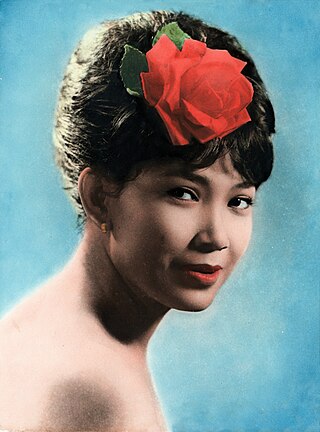
Sexual slavery and sexual exploitation is an attachment of any ownership right over one or more people with the intent of coercing or otherwise forcing them to engage in sexual activities. This includes forced labor that results in sexual activity, forced marriage and sex trafficking, such as the sexual trafficking of children.

After taking power in 1949, the Chinese Communist Party (CCP) embarked upon a series of campaigns with the aim of eradicating prostitution from mainland China by the early 1960s. Since the loosening of government controls over society in the early 1980s, prostitution in mainland China not only has become more visible, but can now be found throughout both urban and rural areas. In spite of government efforts, prostitution has now developed to the extent that it comprises an industry, one that involves a great number of people and produces a considerable economic output. Prostitution has also become associated with a number of issues, including organized crime, government corruption, hypocrisy, as well as sexually transmitted diseases. Notably, a CCP official who was a major provincial campaigner against corruption was removed from his post and expelled from the party after he was caught in a hotel room with a prostitute in 2007.
Prostitution in Ireland is legal. However, since March 2017, it has been an offence to buy sex. All forms of third party involvement are illegal but are commonly practiced. Since the law that criminalises clients came into being, with the purpose of reducing the demand for prostitution, the number of prosecutions for the purchase of sex increased from 10 in 2018 to 92 in 2020. In a report from UCD's Sexual Exploitation Research Programme the development is called ”a promising start in interrupting the demand for prostitution.” Most prostitution in Ireland occurs indoors. Street prostitution has declined considerably in the 21st century, with the vast majority of prostitution now advertised on the internet.
Njoo Han Siang (杨汉祥) is a pioneer of Indonesian national banking and film industry. He is known as an idealist and has a wide range of interests. He was a journalist, entrepreneur, educator, Chinese ethnic assimilationist, lover of Indonesian art and culture and someone who cares about the nation's social and political life.

Ahmad Salim, better known by his birth name Wim Umboh but also known by the Chinese name Liem Yan Yung, was an Indonesian director who is best known for his melodramatic romances.

Jamila and the President is a 2009 Indonesian film directed by Ratna Sarumpaet and starring Atiqah Hasiholan and Christine Hakim. It follows the story of a prostitute sentenced to death for killing a government minister.

Raden Nganten Nurnaningsih was an Indonesian actress. She has been described as Indonesia's first sex bomb.

Atheis is a 1974 Indonesian film directed by Sjumandjaja and adapted from Achdiat Karta Mihardja's novel of the same name. It follows a young Muslim man named Hasan who, through his interactions with others, loses his faith.
Salah Asuhan is a 1972 film directed by Asrul Sani, produced by Andy Azhar, and starring Dicky Zulkarnaen, Ruth Pelupessy, and Rima Melati. Adapted from Abdoel Moeis' 1928 novel of the same name, it tells of a man who betrays his upbringing for the metropolitan life, while at the same time marrying an Indo woman instead of the one chosen by his mother.

Ponirah Terpidana is a 1984 Indonesian drama film directed by Slamet Rahardjo. Starring Nani Vidia, Rahardjo, and Ray Sahetapy, it follows a young woman named Ponirah who becomes a prostitute and is arrested for the murder of a rich businessman. The film, which combined traditional and contemporary elements, was a critical success in Indonesia. It won three Citra Awards at the 1984 Indonesian Film Festival, from a total of eleven nominations.

During and following the Korean War, the United States military used regulated prostitution services in South Korean military camptowns. Despite prostitution being illegal since 1948, women in South Korea were the fundamental source of sexual services for the US military and a component of Korean-American relations. The women in South Korea who served as prostitutes are known as kijichon (기지촌) women, also called as "Korean Military Comfort Women", and were visited by the US military, Korean soldiers, and Korean civilians. The prostitutes were from Korea, Philippines, China, Vietnam, Thailand, Sri Lanka, Nepal, Indonesia, and the Commonwealth of Independent States.

Ellisa Meriam Bellina Maria Bamboe, or better known by her stage name as Meriam Bellina, is an Indonesian actress who has won three Citra Awards and acted in more than 50 films. Born and raised in Bandung, she dropped out of senior high school to begin a career as a model and actress. By the mid-1980s she was recognised as a "sex bomb" and "fantasy girl". During the 1990s she focused mostly on television series, but she has produced several feature films since 2007.

The Citra Award for Best Actor is an award given at the Indonesian Film Festival (FFI) to Indonesian actors for their achievements in leading roles. The Citra Awards, described by Screen International as "Indonesia's equivalent to the Oscars", are the country's most prestigious film awards and are intended to recognize achievements in films as well as to draw public interest to the film industry.

Anastasya Soerip was an Indonesian singer and actress.

Boes Boestami was an Indonesian journalist and film actor. He was mostly known for his comedic roles.

Darussalam was an Indonesian actor who appeared in more than seventy films in his forty-year career. Born in Bengkulu, he studied to be nurse before migrating to theatre during the Japanese occupation of the Dutch East Indies, marrying Netty Herawaty while with the troupe Irama Masa. The couple spent the remainder of the occupation and the ensuing revolution touring the archipelago with a number of troupes. In 1949, Darussalam and Herawaty made their feature film debut in Fred Young's Saputangan, appearing in seven further Young productions before migrating to Djamaluddin Malik's Persari. During their eight years with the company, Darussalam and Herawaty travelled to the Philippines and Singapore and found popularity among audiences, though Darussalam remained in his wife's shadow.

Marjolein Tambayong, better known by her stage name Rima Melati or by her nickname Lientje, was an Indonesian actress, model, and singer. She appeared in close to one hundred feature films, including works by Wim Umboh, Sjumandjaja, and Teguh Karya. She received multiple awards, including a PWI Award for Best Actress for Noda Tak Berampun, a Citra Award for Best Leading Actress for Intan Berduri, and five nominations for the Citra Award for Best Supporting Actress.

Farouk Achmad, often credited as Farouk Afero, was a British India-born Indonesian film actor. After making his feature film debut in 1964, he rose to fame in 1970 with Bernafas dalam Lumpur. Afero ultimately appeared in more than sixty films.

Paula Frans Rumokoy was an Indonesian actress, model, and dancer who was active in the 1960s and 1970s. She along with Suzan Tolani earned the nickname of "most popular Indonesian star" in the 1970s.















